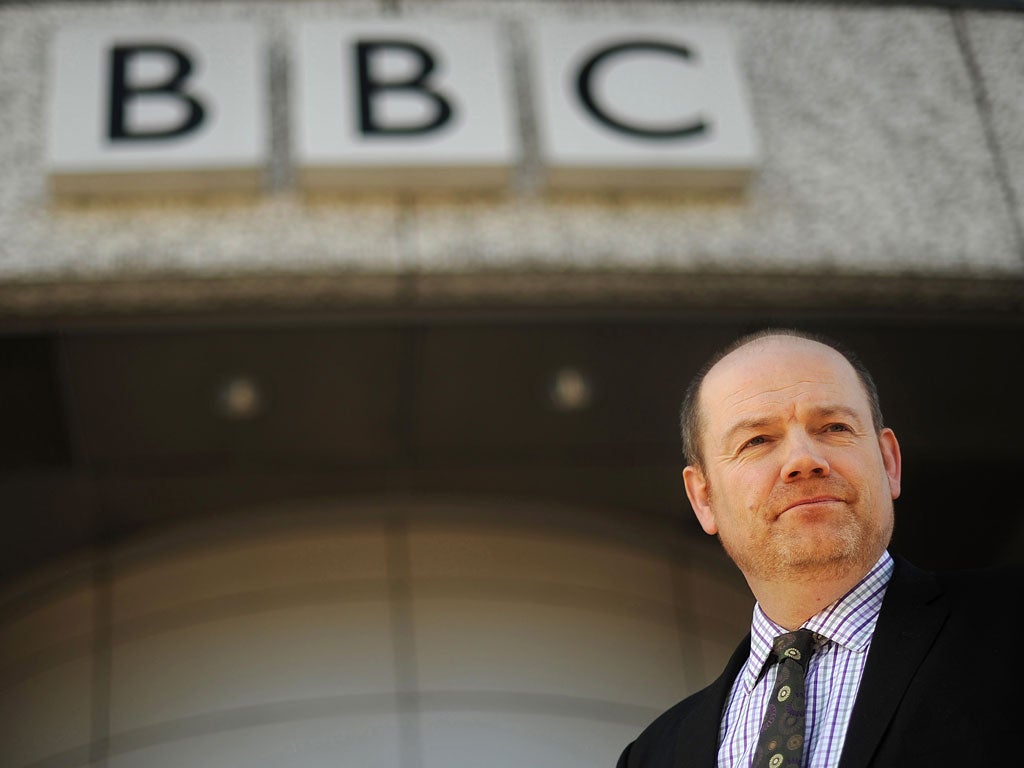BBC severance row: Corporation's 'big beasts' Lord Patten and Mark Thompson gear up for battle that only one can win
Current BBC chairman and former Director-General will provide theatre in front of Public Accounts Committee

Your support helps us to tell the story
From reproductive rights to climate change to Big Tech, The Independent is on the ground when the story is developing. Whether it's investigating the financials of Elon Musk's pro-Trump PAC or producing our latest documentary, 'The A Word', which shines a light on the American women fighting for reproductive rights, we know how important it is to parse out the facts from the messaging.
At such a critical moment in US history, we need reporters on the ground. Your donation allows us to keep sending journalists to speak to both sides of the story.
The Independent is trusted by Americans across the entire political spectrum. And unlike many other quality news outlets, we choose not to lock Americans out of our reporting and analysis with paywalls. We believe quality journalism should be available to everyone, paid for by those who can afford it.
Your support makes all the difference.“There’s only room for one Silverback at the BBC,” one of the corporation’s senior executives said today, “and Chris Patten and Mark Thompson were both vying for the same position.”
On Monday these big beasts – the current BBC chairman and the former Director-General – come nose-to-nose again. They will be required to make a convincing display of their prowess under the gaze of Margaret Hodge and other members of her band, the Public Accounts Committee (PAC). And so diametrically opposed are the two men that only one can be a winner.
The PAC hearing into BBC executive pay will give insight into the behaviour of the organisation’s leaders and will be closely studied by the rest of the media; the BBC could do worse than send Sir David Attenborough along.
At the heart of the latest row over pay-offs is the relationship between Lord Patten and the former Director-General. Each accuses the other of misleading MPs in evidence to the committee. Thompson has accused Patten and his BBC Trust colleague Anthony Fry of “specific untruths and inaccuracies” in their claims of not being informed of controversial pay settlements. The Trust has dismissed Thompson’s analysis in a witness statement as a “bizarre document”.
When Thompson stood down after eight years in 2012, he was described by the BBC Trust chairman as “an outstanding Director-General”. But privately their alliance was more complex. Thompson had been planning to move on but Lord Patten set the process in motion with an interview in The Times in January 2012 in which he revealed that headhunters had been appointed to find a replacement. “It was about the chairman being in control of the process – not Mark Thompson announcing when he was going to go,” said a source.
Lord Patten is widely held to have personally anointed Thompson’s successor, the comparatively inexperienced George Entwistle. But the Jimmy Savile scandal, which broke in the autumn of last year, poisoned the relationship between the BBC Executive and its governing body, the BBC Trust. The Pollard Inquiry into the BBC’s handling of Savile revealed and provoked deep rifts between the two entities and Entwistle was brought down by the scandal after 54 days.
Thompson was appointed CEO of the New York Times Company but during recent months his legacy at the BBC has been called into question. Lord Hall, who was called in as Entwistle’s replacement, has been unhappy to find the organisation less well-run than was assumed.
Hall has shone a light on the apparently excessive rewards paid to departing executives under his predecessor’s “delivering quality first” reform. Thompson’s deputy Mark Byford received £1m to go, and former marketing director Sharon Baylay went with £390,000. The National Audit Office has found that the BBC paid £2.9m more than it was contracted to in pay-offs agreed between 2006 and 2012.
Despite evidence by Patten and Fry – reiterated yesterday by the BBC Trust – that “the Trust did not have a role in the approval process”, Thompson has advised the committee that “Lord Patten was himself fully briefed, in writing as well as orally, about the Mark Byford and Sharon Baylay settlements”. They can’t both be right.
During the Savile scandal, BBC executives – including Thompson – were at pains to show how little they had known. The former DG is now claiming that informal discussions about pay-offs were conducted between Executive and governing body.
Monday’s hearing is designed to ensure that the BBC’s audience will in future get greater value for money. But for Lord Patten and Mark Thompson the stakes are high. Thompson would be badly damaged by any findings that he misled MPs or was cavalier with public money. The BBC chairman, meanwhile, has been wounded by Savile, and probably cannot afford to lose this show of strength.
Join our commenting forum
Join thought-provoking conversations, follow other Independent readers and see their replies
0Comments